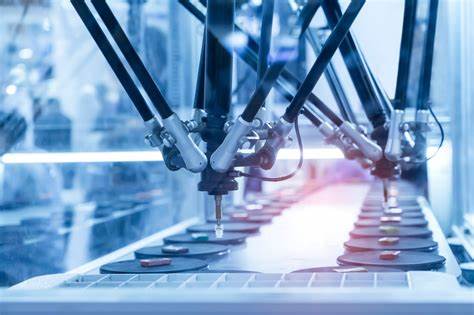Medtech manufacturers hail CDSCO move on stopping import of used medical devices
January 17, 2025 | Friday | News
India’s compromised healthcare security with 70% imports dependence begins to get addressed
image credit- shutterstock
Medical device manufacturers have hailed the clarification by the Central Drugs Standard Control Organization (CDSCO) that current law does not provide for granting of licenses for import of refurbished devices.
Pointing out that the healthcare security of the country is already compromised with about 70% of the current medical device requirements being met through imports, the Association of Indian Medical Device Industry (AiMeD) said that ongoing import of used medical devices without any regulatory controls had further jeopardized it as nearly 60% of the Rs 40,000 Cr of imports of medical electronic equipment were estimated to be of preowned equipment being dumped into India.
That is one of the main reasons why domestic manufacturers have been seeking regulations of this sector to enable a level playing field. All medical devices had come under regulations in Feb 2020 and a transition time had been provided thereafter for importers and manufacturers to get licensed under Medical Devices Rules of D&C Act.
“A stop to import of refurbished medical equipment is a true policy intervention that will guard the domestic industry against dumping of equipment with uncertain quality and will also help the patients in receiving appropriate medical care thereby bringing the best value of cost for them and for the payers, including insurance agencies. This is a welcome and much awaited long due intervention”, said Dr Jitendra Sharma, Managing Director, AMTZ, Visakhapatnam.
At a time when the domestic industry is already grappling with issues like negligible import tariff of 0 to 7.5% on medical devices in India, allowing import of refurbished devices had further acted as a deterrent to the entrepreneurial spirits of the domestic manufacturing industry making India severely imports dependent, pointed out Rajiv Nath, Forum Co-Ordinator, AiMeD.
“We welcome MNCs to invest in India and make high technology equipment and make these affordable to the Indian patients as is being done in Mobile phones and the automobile sector. A healthy competition is welcome,” said Nath.
“There is a Policy review of the need for imports underway and we have sought related regulations for refurbished or remanufactured Indigenous medical equipment that has lived beyond the extended warranty terms, with adequate and additional patient safety safeguards to bring in the necessary discipline “ and Mr. Nath hoped that the guidelines issued by the Ministry will be in consonance with the National Medical Devices Policy 2023 to make India a leading hub of manufacturing of medical devices globally.
Confusion arose after a notification by the Ministry of Environment, Forest, and Climate Change (MoEFCC) allowed the import of certain second-hand medical devices and equipment in India.
Nath has pointed out that while (MoEFCC) may be right in addressing the concerns regarding e-waste management, other regulators like CDSCO must diligently carry out their duties in addressing the high-risk patient safety concerns. He also highlighted the fact that, many-at-times, the import of new medical devices is resulting in end-users paying 10-30 times of the import landing price of the devices because of absence of trade margin rationalization measures. This is where the Ministry of Health, Dept. of Pharma, together with the Ministry of Finance, must play its part in regulating the MRP of the devices in a rational manner so that ethical manufacturers and marketers as well as consumers gain.
India’s import bill for medical devices is going up every year, with a 13% jump in 2023-24 alone. India currently imports a staggering Rs 69,000 crore worth of devices.
“The circular issued by CDSCO regarding refurbished medical devices imported into India has shown Modi 3.0 is awake and ready to listen to a common consumer. Now our next logical step should be to recall all such illegally imported medical devices from every corner of the country and destroy them in the interest of 'Patient Safety', said Prof Bejon Kumar Misra, Founder of Patient Safety and Access Initiative of India Foundation.
As per industry insiders a lot of domestic businessmen have become pseudo manufacturers and importers because of the meager import duties and genuine manufacturers are being pushed out of the business due to prevalent nonconductive duty structures presently.
AiMeD has demanded the import duties to be in the range of 10-15% for medical devices to provide a level playing field to the domestic manufacturers.
“We applaud the CDSCO in removing the confusing signals we had been getting as on one side we had been supported by GoI excellent PLI scheme to manufacture high end Cath labs & imaging equipment in India but were despondent when we had to compete against low-priced second-hand imports. The Medical Device rules do need a provision for extra safeguards needed for refurbishing or re-manufacturing of equipment beyond extended warranty period and the existing informal sectors that had been repairing and refurbishing imported pre-owned equipment can now use their skills to do so for the indigenously produced equipment. With a growing market expected from a stable and competitive domestic manufacturing, this sector will also have ample opportunities to grow as a support to the healthcare industry, explained Gaurav Aggarwal, Managing Director, Innvolution Healthcare.









